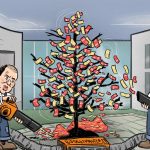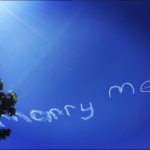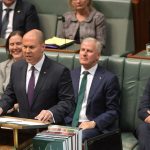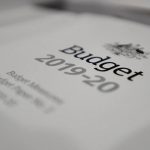Isolation, my dad and me
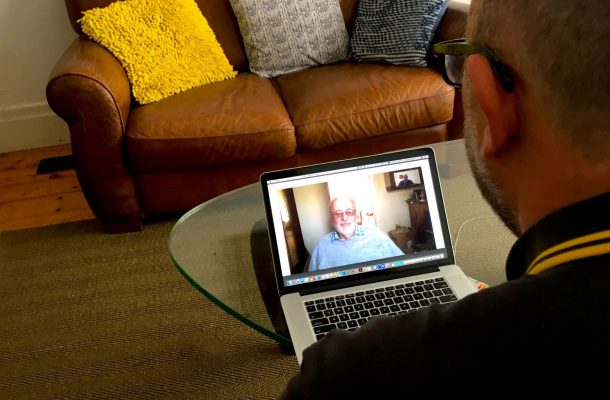
In a few short weeks, we seem to have transitioned to a new epoch – the Age of Zoom. In amidst the physical distancing we should all be observing in these COVID-19 days, virtual assembling is keeping a semblance of our social lives afloat.
Even confessed technophobes, like my 92-year-old father and I, have changed the habits of a lifetime.
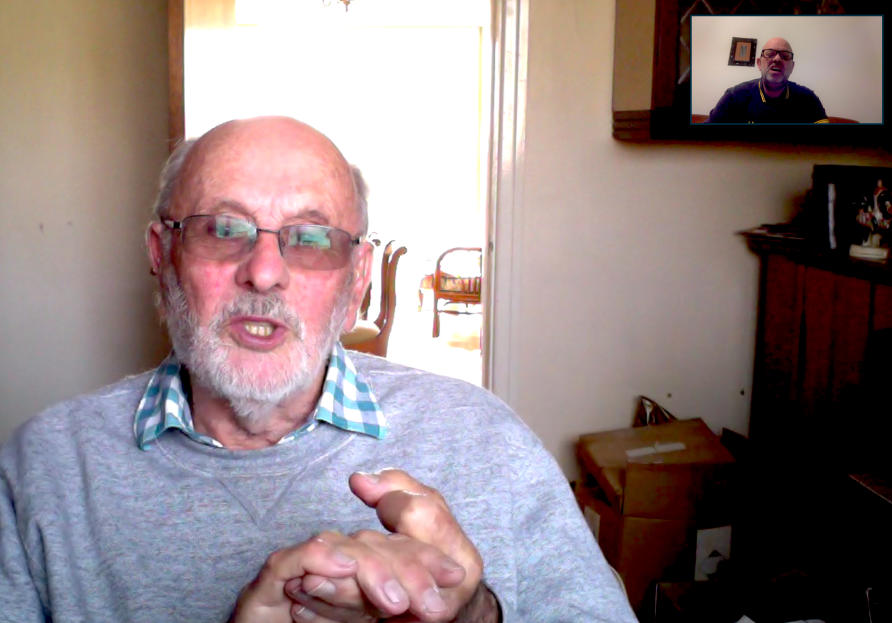
Andrew Dawson and his father, Wilf, debate the state of current politics on their nightly webchat.
Our once weekly phone calls between Australia and the UK have been replaced by nightly webchats.
Last night, I asked Dad how he was coping with the UK government’s instruction to people over 70 to stay home for up to four months to protect themselves.
“It’s a prison sentence”, he said, and added, “just like normal”.
Over the past eight years, Dad has made a damn good go of filling the devastating social void left by the passing of my mother. Due to a toxic combination of social, physiological and economic forces, however, his efforts are increasingly in vain.
The former farming village in which he lives is now a dormitory for commuters who either do not care or are too tired to socialise with neighbours. His failing eyesight renders driving to the nearby city of Newcastle-upon-Tyne increasingly risky.
Worse still are the impacts of austerity.
The once half-hourly bus service to Newcastle has been cut to precisely zero. And, even chance meetings with old acquaintances at the doctor’s surgery are now a thing of the past.
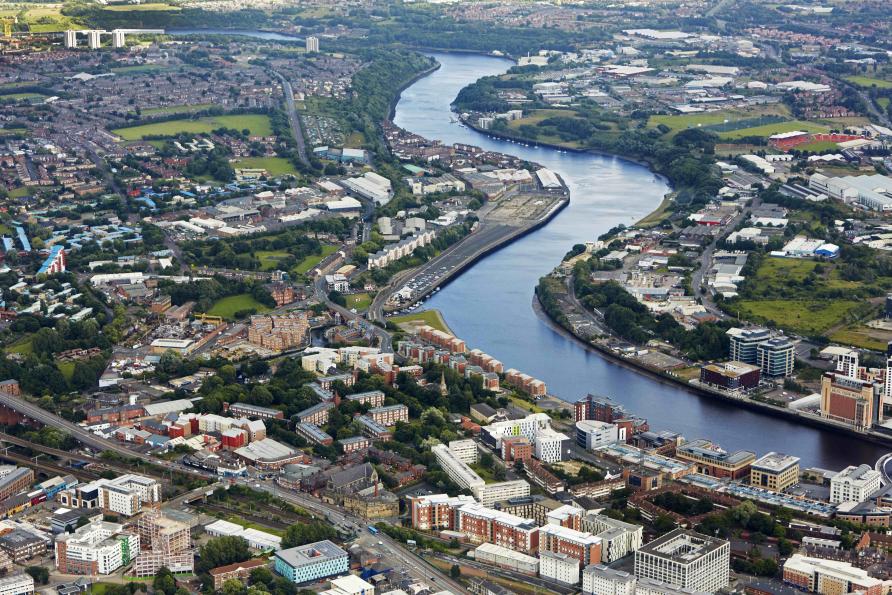
The nearby city of Newcastle-upon-Tyne is increasingly out of reach.
The British are rightly proud of “our NHS” (National Health Service), the centrepiece of the post-war welfare state. For years though, many doctors have been reduced to offering short telephone consultations for the diagnosis and treatment of non-serious conditions.
Aside from his annual three-month family visit to Australia and my brother’s occasional visits from way up in Scotland, Dad’s face-to-face social life has been reduced to a few short daily rituals.
Each morning he walks four kilometres up and down the windswept service lane of an abandoned old motorway to collect his newspaper from the gas station. It is the last (almost) local shop to remain open after years of the retail denudement of villages brought on by the rise of the out-of-town mega-shopping complex.
Dad exchanges brief pleasantries with the busy cashier and then leaves.
And now, thankfully, a local and kindly, and often masked, Chinese couple knock on Dad’s windowpane every afternoon, checking to see if he is OK and to enquire about his grocery needs.
They are as grateful as he is for this small morsel of contact.
It has been reported to me that some of the residents in other villages of northeast England where I have conducted anthropological fieldwork for many years have taken to calling COVID-19 by the racist term ‘Yellow Plague’ – a sad trend that’s been reported elsewhere.
And, in turn, local Chinese report long-term neighbours crossing to the other side of the street as, with quickening steps, they walk on by.
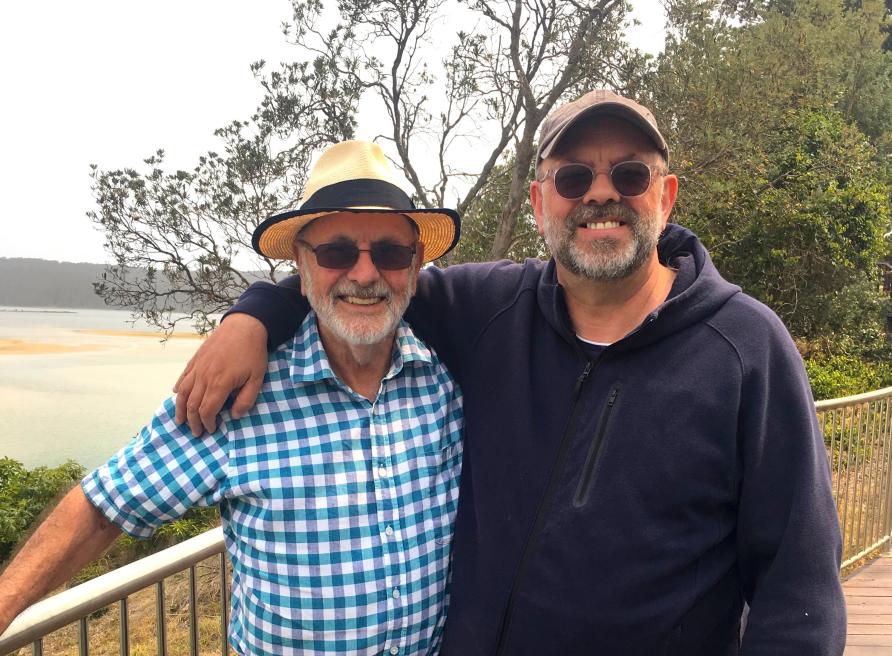
Andrew Dawson and his father, Wilf, during one of his annual three-month family visits to Australia.
Research demonstrates fairly conclusively that increasing social isolation is a hallmark of modern times.
This has resulted in levels of loneliness reaching an all-time high.
Connection to others socially is widely considered “a fundamental human need — crucial to both well-being and survival”. While loneliness has severe negative impacts on mental, cognitive, and physical health.
The research describes the situation graphically, claiming that “lack of social connection heightens health risks as much as smoking 15 cigarettes a day or having alcohol use disorder”.
Finally, and crucially, loneliness increases the risk of premature death. Indeed, even without the wisdom of medical research we already knew this.
As Elvis Presley put it a long time ago, ‘I feel so lonely I could die’.
In 2020, the coronavirus pandemic raises many ironies and contradictions.
Those people who are immunocompromised, for example, are especially at risk of succumbing and, as a result, subject most to recommendations to self-isolate. Research has found that people who feel lonely have less immunity.
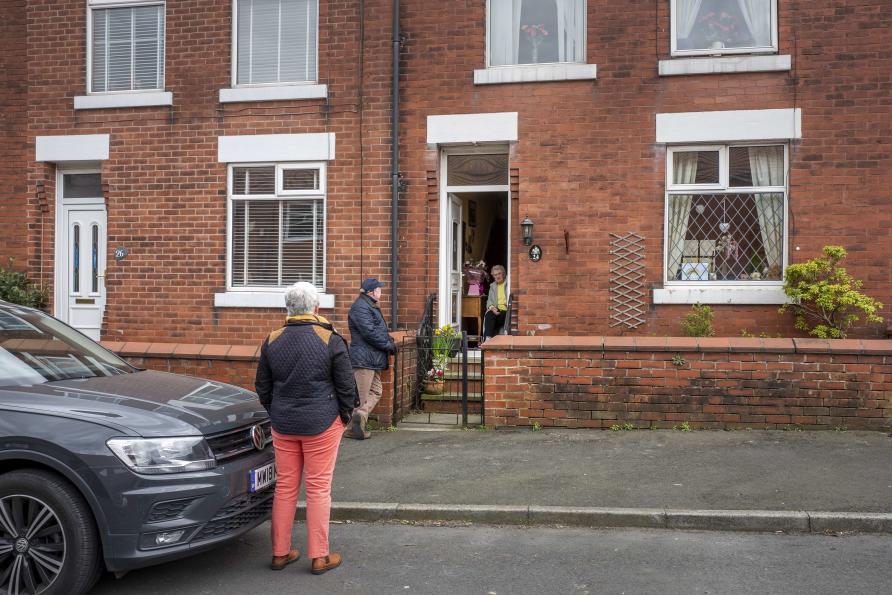
The UK government’s instruction to people over 70 is to stay home for up to four months to protect themselves.
And, of course, it is older people who tend to be the most immune-compromised, most isolated, most lonely, and, thereby, in a sense, most threatened by the very self-isolating measures that are laudably designed to protect them.
Social isolation is not just, as the philosopher Giorgio Agamben might put it, a “state of exception” rendered, in this instance, by the coronavirus pandemic.
Nor is it, as Prime Minister Scott Morrison might put it, an instance of a ‘new normal’.
For many, especially older people it is a necessary but, nevertheless, dangerous case of more of the old normal.
In the meantime, Dad and me will keep on chatting, like never before perhaps. With good reason we have come to realise that our conversations are not something to be taken for granted. In talking not only do we communicate. In talking we live.
This article was published by Pursuit.
Andrew Dawson is a Professor of Social and Political Sciences in the Faculty of Arts at the University of Melbourne.







